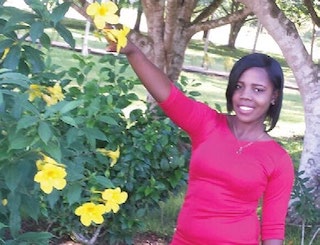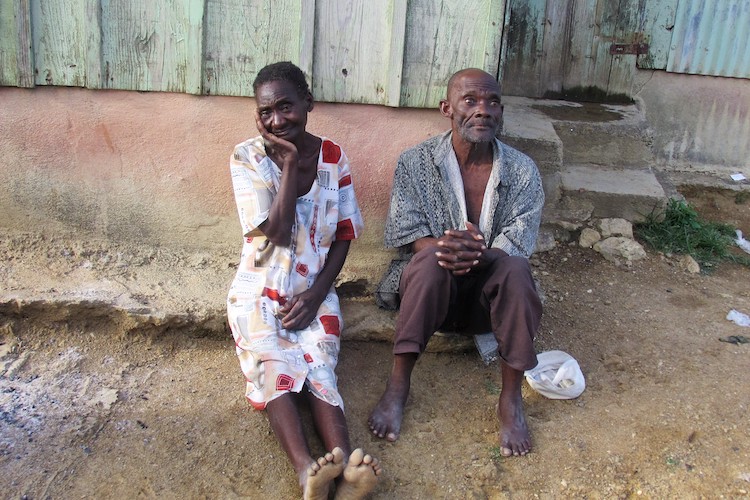A Better Life

Margarita Vicente (1992) Batey El 80, Guaymate, La Romana. She has no children and is single. She is currently attending university and she has a national identity and electoral card.
I was born in a batey called “The 80.” I grew up there, where the sunrise was very beautiful, where the roosters sang each morning, cu-cu-ru-cu. Everything was difficult in the batey, we lived with many unmet needs. Since I was little I saw my father work hard. He got up very early, at four in the morning every day to hustle so he could bring something home so that, at least, my brothers and I could eat. He worked very hard to get my four brothers and me ahead. It was painful to see how my father struggled to give us a better life.
He always wanted to make sure we had a dignified life. He enrolled us in school very early on, as he really wanted us to have a good education. I was enrolled by my father in the little school in the batey when I was five years old. There I studied until fourth grade. When I passed fifth grade at age nine, I went on to study in the municipality of Guaymate, where I had to walk about 6 kilometers daily. It was not easy to walk every day, and it was hard to leave at twelve noon to arrive home hungry. Sometimes I arrived home, and the food wasn’t even ready.
The first week, when I went to fifth grade, I felt happy and excited, I didn’t mind walking. But, two weeks later, I felt tired and cried when I had to get up at 6:00 am to prepare to go to school. I would say to my mom: “I don’t want to go… I feel tired from walking so much.” She would tell me: “You have to go, your dad is going to join a san1 to buy a little motorcycle for your brother to take you, but until then, you’ll have to walk with the other children.”
Life in the batey was not easy, but —at least— I was able to go to school. My parents, despite how much they had to work, always worried about our education. At 17 years old, I finished high school. I graduated. I felt happy because it was worth all the walking on foot, and also that I no longer had to walk on foot.
Little by little my dad is doing better each day (when they gave him the pension), even though it’s not much, but it’s good for something with the pension and he is still working, but a job less physically demanding than a cart driver. He decided that I would continue my studies one year after my graduation. He wants me to enroll in the university so that I can have a better life and be able to better myself. I decided to sign up, but I still don’t have the National ID.
When I went to the Junta Central Electoral (JCE)2 to get my records for identification purposes, at the reception I delivered my records, they looked me up in the book, looked at it, then they told me: “You have to go through a process because they are not giving National IDs to the children of foreigners.” I felt very bad, every day the situation worsened, the years passed and nothing was resolved. They kept denying my documents. Panic. I felt helpless because, despite having my birth certificate, they were denying me my rights. And I couldn’t do anything. Due to the denial of my National ID I can’t enroll in the university.
Time passed and nothing got resolved, until one day —finally— at the JCE they decided to take a picture of me and of those who had the same situation. But the issue was not resolved then because after they took my photo for the National ID, two years later is when they gave me my National ID. After I received my National ID, I immediately enrolled in the university to study education with a specialization in social sciences. My father helped me with college expenses. A year after being in college I got a job in a school as a teacher’s assistant (in the afternoon).
My greatest desire is to become an excellent professional.
